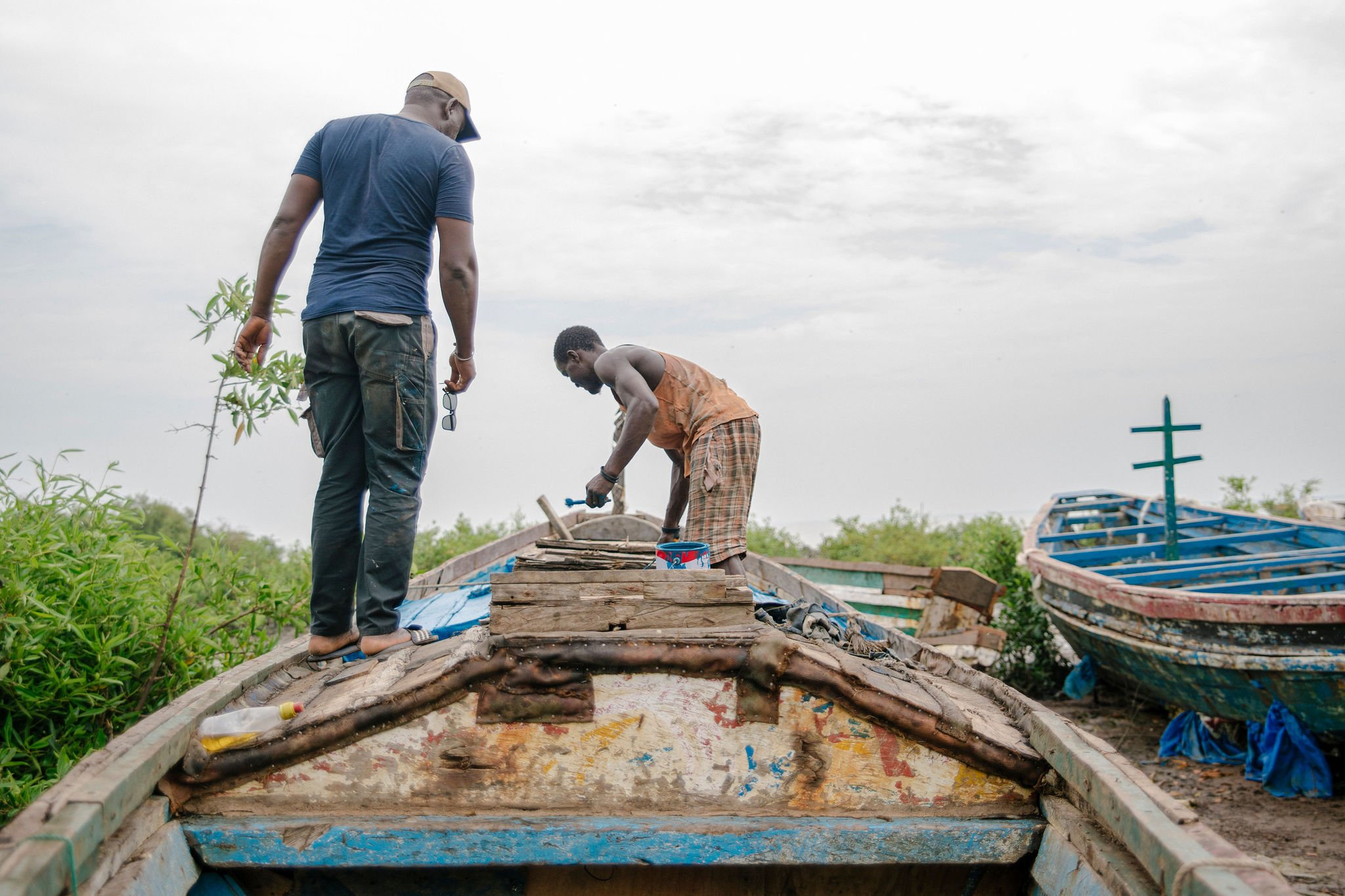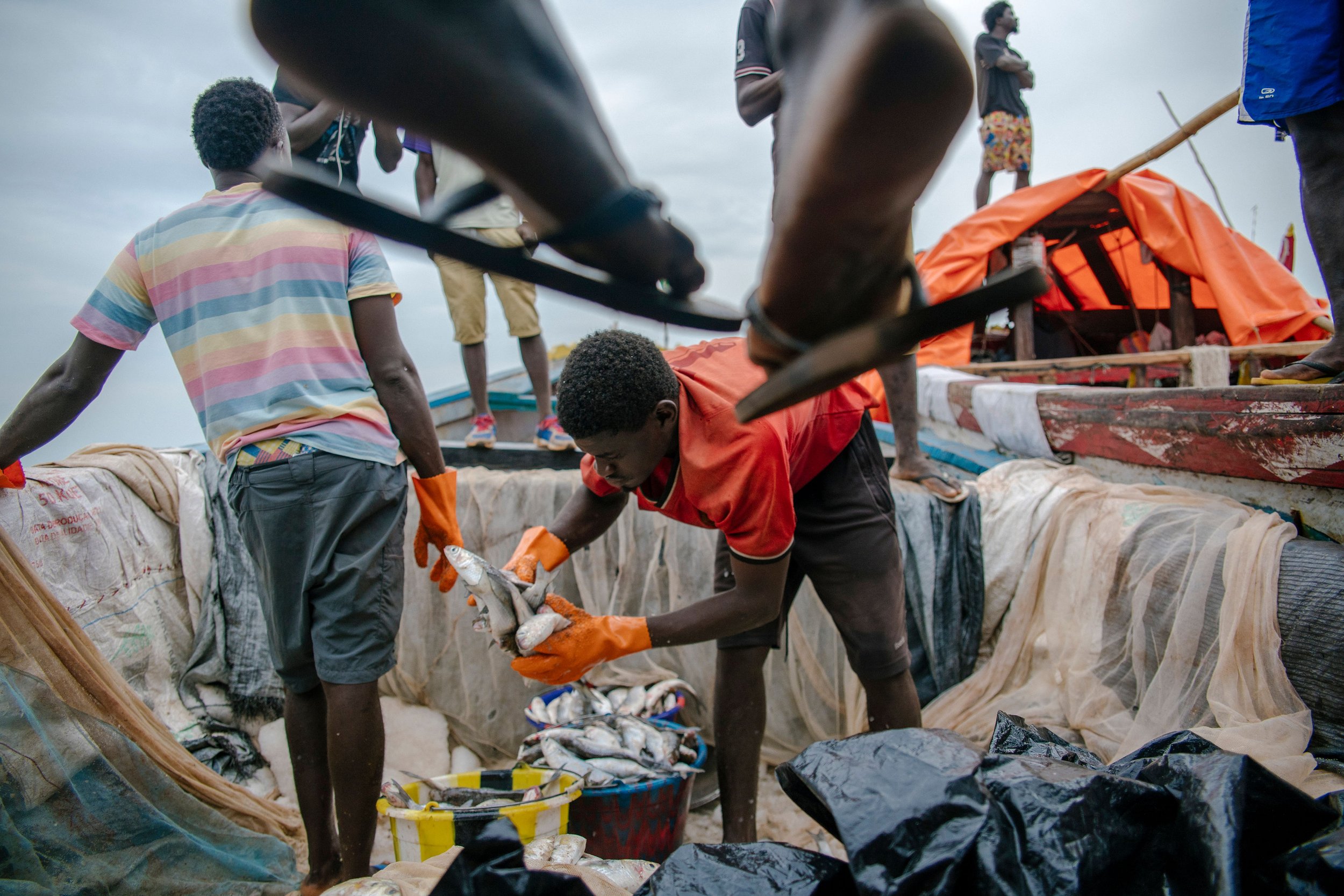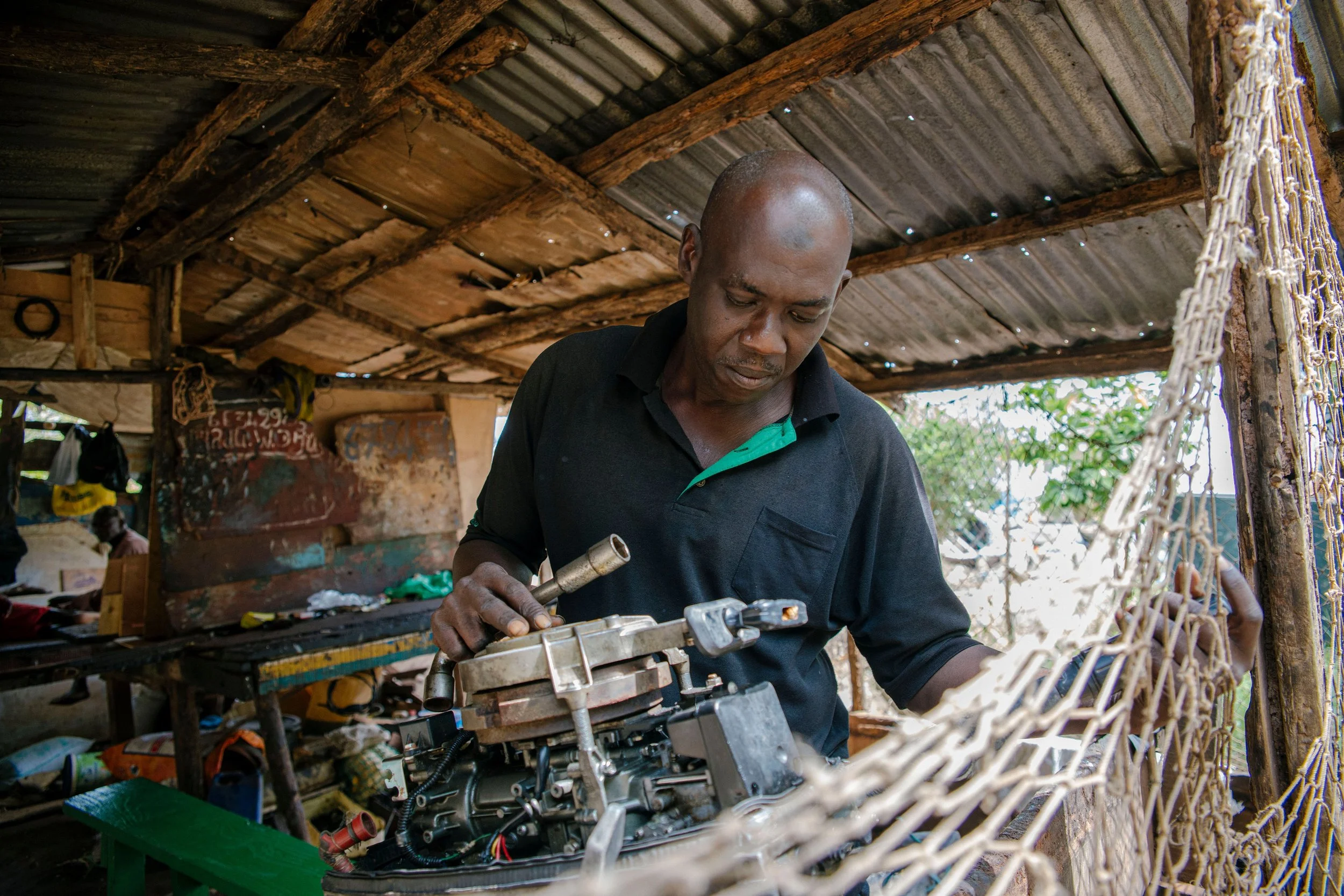
In Guinea-Bissau, pirogues made of wood usually do not exceed 18 meters. In some of the other West African countries, pirogues made of fiberglass, lighter and more resistant, are now being built. Salif Mbou (left) is the chief carpenter in Bissau.

Ana Pereira is a pirogue owner in Cacheu, an area rich in fish 60 km North West from the capital. According to official data, there are 883 active pirogues and nearly 5,600 fishers in Guinea Bissau. Most owners never go fishing, but receive a fee or get a portion of the catch.

Fishing is one of the most dangerous jobs in the world and weather can be a treacherous enemy for the fishermen. Often, much time is spent waiting for the right time to go out.

In Ilonde, 5 km West from the capital, communities, both men, women and their children, fish on foot from the beach.

On the road between Bissau and Cachungo, women use these round nets to catch crabs on the shore.

Fishermen are always racing against time under the tropical sun, to ensure fish does not spoil before they land it. Ice is essential for the conservation of the catches on board and, with fuel, one of the biggest expenses for a fishing trip.

In Cacheu, Marie Brassene gives money to her husband Jaime Brassene Jandim, to cover the costs of fuel and ice. Often women fish processors pre-finance the cost of the fishing trip to secure priority access to the catches of the pirogue.

Landing of fish in Bissau. When the pirogue arrives at the landing site, it is usually the youth and women who offload the catches. Fishermen’s earnings depend on the amount of catches made. Often, they are not enough to pay the pirogue owner and cover the fuel and ice costs, and the crew goes empty handed.

Ice continues to be essential after the landing of fish. Filipe Soares is the owner of the ice plant in Bissau.

Truck, motorbikes, on foot... Young men transport and distribute fish to the market or bring it to the processing sites.

The fish market in Bissau, where fish is sold fresh. Artisanal conservation techniques are used to preserve the fish longer.

For example, in Cacheu, women smoke fish at night, after having fulfilled all their other tasks: preparing their children for school, cleaning the house, going to the landing site, preparing lunch, going to the market…

Another technique is sun drying. In Cacheu also, women fish processors spread the fish on trays to let them dry in the sun.

Back at the landing site, there are plenty of small jobs to keep youth busy.

While some pirogues are operated by sail, most use engines of less than 60 HP. Boubacar Diouf, in Bissau, repairs pirogue engines.

Fishing nets need mending. Apart from the wear and tear and accidental damage, industrial trawlers often destroy or damage artisanal fishing nets and fishermen seldom get compensation for this.

Pirogues also need regular washing, polishing and maintenance.

















